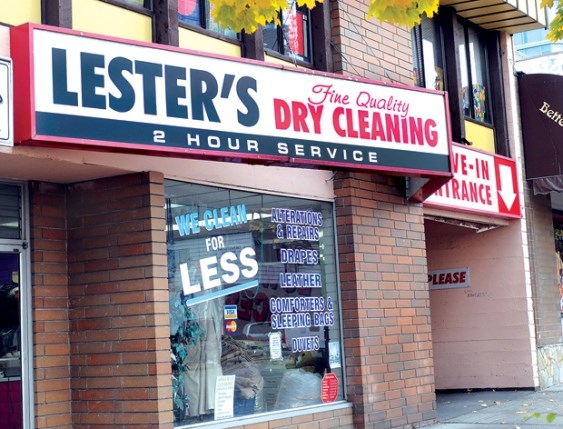A North Vancouver drycleaning company has been fined $9,500 for violating environmental regulations.
Lester's Drycleaning was handed the fine Friday by a provincial court judge after the company pleaded guilty last month to keeping the dry-cleaning solvent tetrachloroethylene known as "PERC " without a closed lid and without a secondary containment system, as required by regulations.
The company was charged after environmental protection officers conducted an inspection on June 21 last year and found two buckets - one containing green liquid and another containing solid material - sitting on the floor of the business without lids on them.
PERC has been recognized as carcinogenic, which is why it's so heavily regulated, Crown counsel Perbeen Mann told the judge.
Dizziness can happen if someone breathes air containing PERC at a concentration of 200 parts per million, said Mann.
WorksafeBC regulations specify that workers shouldn't be exposed to any more than 25 parts per million over a 15-minute period, with a maximum of four 15-minute periods over eight hours.
In handing down his sentence, Judge Steven Merrick said it's likely that customers who walked into the business were exposed to some level of the toxic chemical.
"Environmental crimes hurt each and every one of us," he said.
He added the public has a right to know that businesses are complying with environmental regulations.
Earlier in the sentencing hearing, Merrick asked the lawyer for the drycleaning company why he shouldn't send company owner Alhamid Dharshi to jail for endangering the health of his customers.
But defence lawyer Joe Deuling said company owners were guilty of a momentary lapse, not longterm negligence.
Dharshi simply got distracted with work and forgot about the buckets for a few hours on the day of the inspection, said Deuling.
Deuling added there is no evidence anyone was actually harmed by the chemical, which is used by most dry cleaners.
"That's not going to stop until we stop using dry cleaners," he said.
Having started his drycleaning business in the 1990s, Dharshi is one of many dry cleaners who were left playing catch-up after environmental regulations came into effect in 2003.
"There were no rules before," Deuling said.
When discussing possible benefits Dharshi may have enjoyed by not following environmental rules, Merrick commented, "The advantage he attains is cheaper drycleaning prices."
In earlier submissions, Mann told Merrick it's not the first time company owners have run afoul of environmental regulations. Dharshi and the drycleaning company also received warnings about violations for storing PERC improperly in 2004, 2006 and 2011.
Merrick ordered the company to pay the $9,500 fine at a rate of $400 a month, adding the fine must be fully paid within two years.
The federal government has since changed the law to increase both minimum and maximum fines for companies caught breaking a number of environmental regulations.



